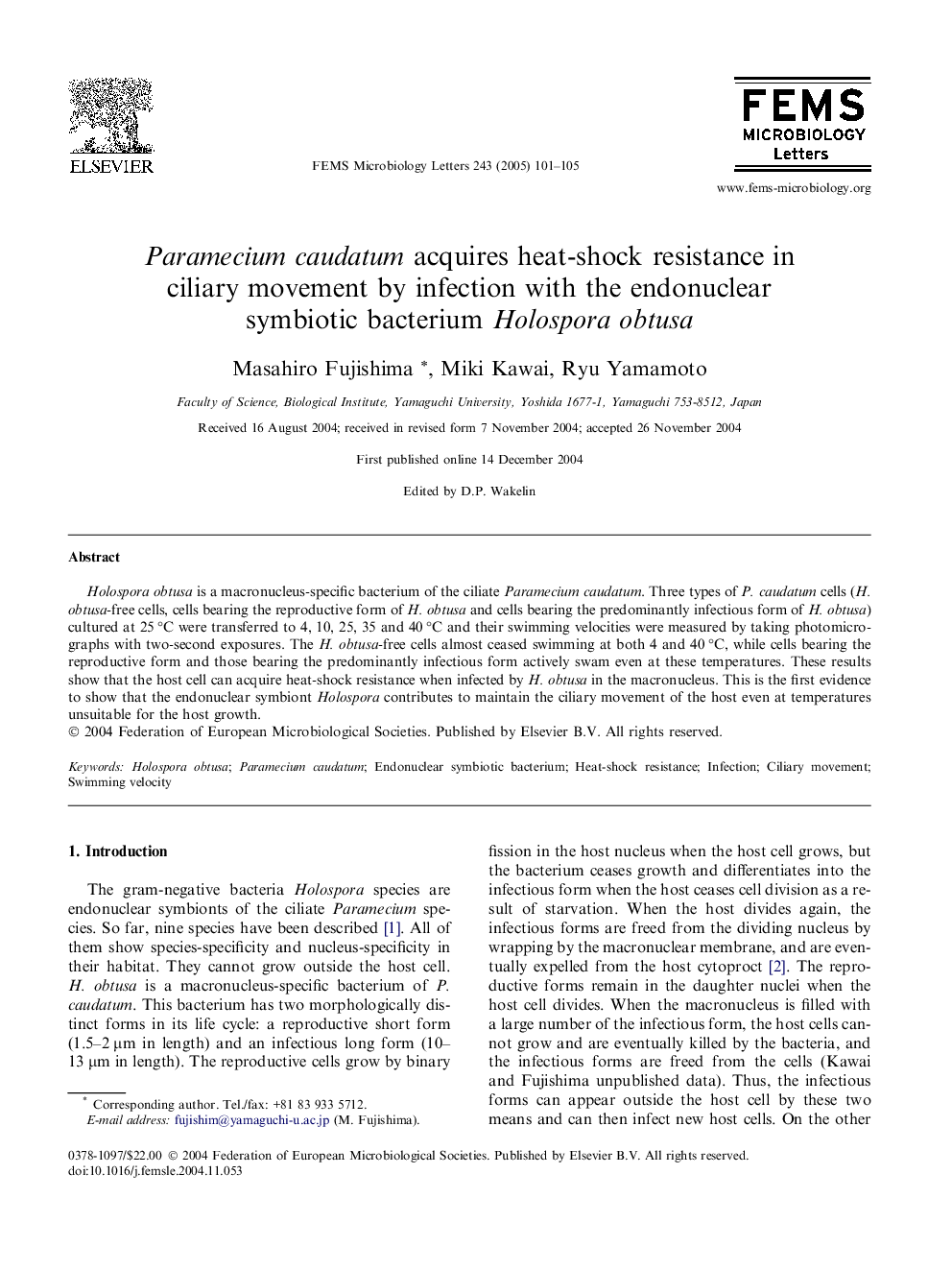| Article ID | Journal | Published Year | Pages | File Type |
|---|---|---|---|---|
| 9122087 | FEMS Microbiology Letters | 2005 | 5 Pages |
Abstract
Holospora obtusa is a macronucleus-specific bacterium of the ciliate Paramecium caudatum. Three types of P. caudatum cells (H. obtusa-free cells, cells bearing the reproductive form of H. obtusa and cells bearing the predominantly infectious form of H. obtusa) cultured at 25 °C were transferred to 4, 10, 25, 35 and 40 °C and their swimming velocities were measured by taking photomicrographs with two-second exposures. The H. obtusa-free cells almost ceased swimming at both 4 and 40 °C, while cells bearing the reproductive form and those bearing the predominantly infectious form actively swam even at these temperatures. These results show that the host cell can acquire heat-shock resistance when infected by H. obtusa in the macronucleus. This is the first evidence to show that the endonuclear symbiont Holospora contributes to maintain the ciliary movement of the host even at temperatures unsuitable for the host growth.
Related Topics
Life Sciences
Biochemistry, Genetics and Molecular Biology
Genetics
Authors
Masahiro Fujishima, Miki Kawai, Ryu Yamamoto,
